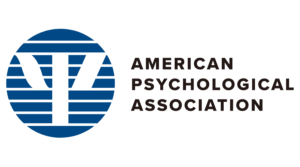Hi - I am Dr. Allana Coffee.
I am very proud to say that I have been in private practice in the Hawaiian Islands for over 25 years, 12 of them in full time private practice. During the first 13 years, as I was completing my doctorate degree, I also raised my twin boys and saw a handful of clients sporadically.
In 2008, I returned to school to complete a ‘doctoral respecialization’ in clinical psychology. Respecialization is “the process by which individuals already holding a doctoral degree in psychology complete additional education and training in order to change their specialist area of study.” I practiced as a licensed master’s level therapist until I completed my clinical respecialization in 2012.
I’ve been fortunate to work alongside some amazing people. My husband and I met while working at The Family Peace Center, a domestic violence agency in Honolulu and have remained partners ever since.
In 2016-2019 my friend and colleague, Clare Rountree, Ph.D, and I opened and ran a group practice. Together we interviewed over two dozen mental health workers and eventually opened our group with six clinicians. We remain grateful to brave souls who worked alongside us as we learned and grew.
What Clare and I learned and cultivated has grown into the Honolulu Psychology Collective which I now own and run with my husband Jerry Coffee. We have room yet to grow. Come grow with us. We are fortunate and we love to share what we have and what we have learned.
There are many wonderful aspects of being in private practice.
- You own your own business. You are your own boss with the flexibility to make and keep your own schedule and the ability to develop the practice that you want. However there are a few things that aren’t discussed in school that can be challenging for clinicians who’ve spent years in mental health work yet not so much time in business and accounting classes. For example, In addition to providing excellent care consistently and professionally, the private practitioner is faced with state licensure requirements, insurance panels, marketing, billing, computer records and accounting systems, malpractice insurance, office expenses, rent, office equipment, sales and marketing costs ( including signage and advertising), staffing costs, tax and legal advisors, tax liabilities, professional development and other professional and medical credentialing costs that are not always made apparent to us in the beginning.
- Private practice is profitable. However, income can be unpredictable. Unlike the security of working at an agency or organization, in private practice income fluctuates and patients referrals vary. It takes time to build your practice. Like any business, there are startup costs which are compounded by the different rate of payment you receive from the insurance providers, and the length of time it takes them to pay you for your services. You will not get paid for time off, so you will need a financial cushion set aside to account for vacation or sick time.
- Group vs solo practice. We learned that private practice is great but a group can be even better! Our group offers business cost sharing, emotional and professional support, camaraderie, collegiality and a steady source of referrals. Join us..





